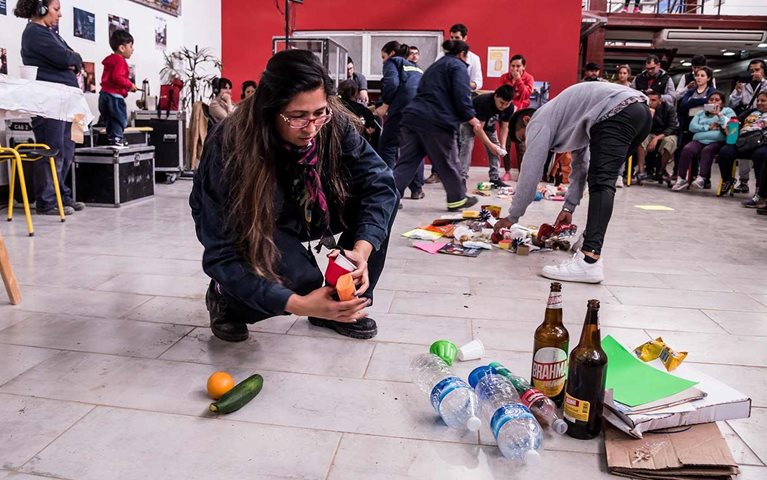These days when Dhia Fani swims in the ocean she often confuses plastic with small jellyfish.
“There is more and more trash at the beach, and it has nowhere to go,” says the Bali-based specialist at McKinsey.org, an independent non-profit founded by McKinsey. “And I know that what I see at one beach is also what is impacting another island beyond the horizon.”
Indeed, an estimated eight million metric tons of plastic waste enter the ocean every year, contaminating water and wreaking havoc on marine wildlife. Without sustained action, the amount of plastic leaking into the ocean will increase dramatically.
This week McKinsey.org partnered with the United Nations and GreenBiz to host Reimagining Ocean Action: Youth Innovation, a virtual event that convened young innovators from around the world to share solutions and strategies to protect the ocean. Dhia—who works on Rethinking Recycling, the flagship program of McKinsey.org—was among the four youth innovators who shared ideas at the event.
She was joined by Lalita Junggee, whose work focuses on the connection of clean oceans to the UN’s Sustainable Development Goals; Sarah Travers, who uses GPS and data to track and encourage sustainable fishing; and Chiagozie Udeh, who studies climate’s connection to the ocean.
While ocean waste has long been a challenge, COVID-19 has intensified the urgency to act on this problem. “Lockdown orders and an economic slowdown have brought supply chains for recycled products to a near standstill, even as demand soars for products made with recycled materials such as toilet paper, canned goods, and shipping boxes,” says Shannon Bouton, a field biologist by training who leads McKinsey.org’s work on Sustainable Communities. “The cost of waste that is not properly managed is estimated to be trillions of dollars annually in ecosystem damage to the environment and public health.”
Dhia spoke about why protecting the ocean starts with ensuring that waste gets recycled and never ends up leaking into the water, drawing on her work in Indonesia.
The cost of waste that is not properly managed is estimated to be trillions of dollars annually in ecosystem damage to the environment and public health.
As part of Rethinking Recycling’s Indonesia program, Desa Kedas, which means “clean village,” Dhia works side by side with community leaders to re-engineer underutilized government waste management facilities into thriving community-driven recycling centers in Bali’s capital city, Denpasar. To date, the program has helped divert roughly 50 percent of waste from landfill and increased essential waste worker wages by 200 pecent.
“What we’ve learned through Rethinking Recycling is that the way to solve our global waste problem is to ensure that we empower local communities with the tools and skills to solve for waste recovery, to have ownership, and to contribute to the solution at large,” she says. The team is now building the Rethinking Recycling Academy to scale the pilot’s success across Bali and other cities in Southeast Asia.
Born and raised in Indonesia, Dhia considers this work deeply personal. “Growing up in an archipelago means you know exactly where the fish that you eat came from—you know the fishermen villages as well as their lives, and you see children playing by the beach,” she shares. “That’s why I want to dedicate this period of my life to solving this issue.”
